7 – 9 May 2024. Africa Fertilizer and Soil Health Summit (AFSH24)
- The Objective of the Summit is to bring together all relevant stakeholders to highlight the crucial role of fertilizer and soil health in stimulating sustainable pro-poor productivity growth in African agriculture and to agree on an African Fertilizer and Soil Health Action Plan, as well as the Soils Initiative for Africa.
- DOWNLOAD THE PROGRAM #16 p.
- DOWNLOAD THE SIDE EVENT PROGRAM #10 p.
"Pre-events"
- 1/12/2023 Soil laboratory technicians joined efforts to improve the quality of soil data in sub-Saharan Africa
- 16/04 The potential of organic and biofertilizers for soil health management in Africa Recorded
- 23-25 April 2024, Dakar, Senegal International Conference on Sustainable Intensification of Soils and Agroecosystems
- 25/04 EU Missions & cross-cutting activities: A Soil Deal for Europe Mission Recorded
- 25/04 Soil health and global food security: Research & innovation
- 25/04 Africa Fertilizer and Soil Health Summit - Delivering the Action Plan to 2034 Recorded
- 25/04 Fertilizers, soil health and food security in Sub-Saharan Africa Recorded
- 25/04 Artificial Intelligence for Sustainable Soil Health Recorded
- 02/05 Launch of the ‘Living Soils initiative’ in Africa Recorded
- 03/05 African solutions: Agroecological fertilizer for healthy soils & healthy communities
Extracts Side events AFSH24
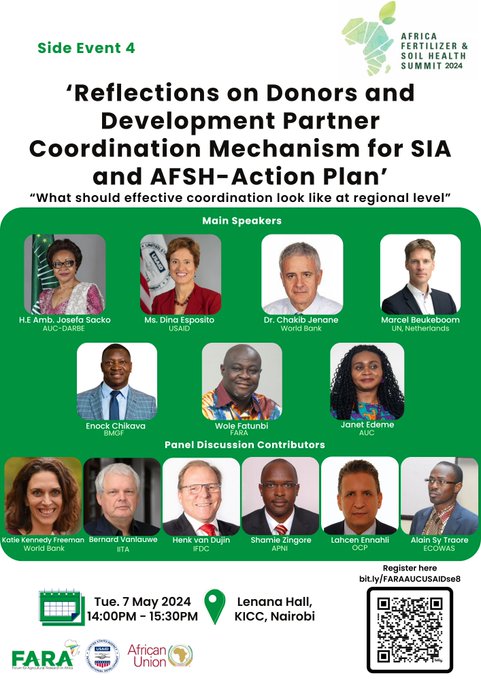
7 May. Side event 4. 14:00 – 15:30. (13:00 - 14:30 CET) Reflections on Donors and Development Webinar
- Partner Coordination Mechanism for SIA and AFSH-Action Plan
7 May. 14:00–15:30 (13:00 - 14:30 CET) African Agroecological Fertilizers for Healthy Soils & Healthy Communities Webinar
- AFSA Side event
- The event will highlight the benefits of agroecological practices and biofertilizer innovations happening across Africa will feature presentations from Kenyan agroecology centres and a government official
- Anne Maina - Biodiversity and Biosafety Association of Kenya
- Bridget Mugambe - Alliance for Food Sovereignty in Africa
- Esther Bett - RODI Kenya, David Karanja - Organic Agriculture Centre of Kenya,
- Ferdinand Wafula - Bio Gardening Innovations
- Daniel Gitahi - Director of Agriculture Strategy, Murang’a County Government
7 May. Side Event 7: 14:00 - 15:30 (13:00 - 14:30 CET) What Business and Industry can do to help Implement the 10-YearAction Plan Webinar
by AFAP-IFA Side Event (see program in the link)
Panel 1. What do business and industry intend to do
to support the implementation of the 10-Year Action
Plan?
- Innocent Okuku, CEO, WAFA,
- William Ngeno, Country Manager for Kenya & Uganda, Yara
- Mehdi Filali, SVP West Africa, OCP Africa
- Ashish Lakhotia, CEO, Fertilizer and Agri-Inputs, ETG
Panel 2. What type of enabling environment would
facilitate this increased private sector investment and
engagement?
- François Visagie, Managing Director, Manufacturing, Omnia
- Malolan Sampath, Chief Marketing Officer, Indorama
- Adriaan de Lange, CEO, Ma’aden Africa
- Lilian Mbuthia, CEO, Fertilizer Association of Kenya
7 May. Side Event 16: 14:00–15:30 Integrated soil health management for productive, inclusive, sustainable farming and food systems in Africa: Exploring the role of agroecology and regenerative agriculture
- by DeSIRA-Lift and IFAD
- Fergus Sinclair (CIFOR-ICRAF)
- James Wangu (WRI)
- Annick Sezibera (CAPAD)
- Talash Huijbers (Insecti Pro)
- Kishero Oliver (coffee farmer)
7 May. Side Event 8: 15:30 (14:30 CET) Upscaling the Promises of Agroecology to deliver Sustained Soil Health in Africa Webinar
- Lead Organizer: CCARDESA Co-organizer: ASARECA, CORAF, AFAAS, FARA and IFAD (CAADP XP4 Institutions)
7 May. Side event 31: Importance and benefits of integrated landscape soil and water management to optimize fertilizer use and soil health across agricultural land uses.
By: AFSA
7 May. Side event 34: 15:30 - 17:15 (14:30 CET) Achieving Resilient Agri-Food Systems through Regenerative Agriculture in the Wake of Global Fertilizer Crises and Climate Change: Innovations and approaches for Improving Soil Health and Sustainable Intensification
by: Sasakawa Africa Association. See zoom link
- Prof. Ruth Oniang’o (picture)/ Honorary Advisor, Sasakawa Africa Association (SAA), Editor in Chief, AJFAND Journal, and 2017 Africa Food Prize Recipient
- The Soil Initiative for Africa - Reversing Decades of Decline in Soil Health in Africa - Dr. David Nielson, Senior Advisor to the North American Agricultural Advisory Network (NAAAN), Senior Advisor to the African Agricultural Research, Innovation, and Education Institutions (AARIEI); Former Lead Agriculture Economist at the World Bank Group.
- Achieving Food Security through Regenerative Agriculture in the Wake of Global Fertilizer Crises - Dr. Amit Roy (picture) / Board Chair, Sasakawa Africa Association (SAA) & former Chief Executive Officer, IFDC
- Disseminating Regenerative Agriculture (RA) for Africa and Enhancing Livelihoods: SAA’s experience in promoting RA - Dr. Stella Kabiri / Lead Regenerative Agriculture, Sasakawa Africa Association (SAA)
- Decreased dependency on imported fertilizer through utilization of locally produced substitutes for phosphate in Sahelian ecosystems - Dr. Andre Bationo, Chief of Party for SAPEP, 2020 Recipient of the Africa Food Prize
- Dr. Martin Fregene, Director, Agriculture and Agro-Industry, African Development Bank
- African Extension Framework for Improving and integrating Soil Health and Sustainable Intensification, - Dr. Silim Nahdy, Executive Director, AFAAS
- Moderator: Dr. Mel Oluoch, Director, Strategic Partnerships, SAAPanelists
- Mr. Mandla Nkomo, the Chief Growth Officer of the Excellence in Agronomy Initiative
- Ms. Everlyn Musyoka (picture), Strategy Lead, Smallholder Business Africa; Bayer Crop Science Ltd
- Dr. Fentahun Mengistu, Country Director, Ethiopia, Sasakawa Africa Association
- Closing Remarks - Dr. Makoto Kitanaka (picture), President, Sasakawa Africa Association (SAA)
7 May. Side event 17.00-18.30 (16:00-17:30 CET) Soil Health and Water Management Innovations for Sustainable Agricultural Landscape in Africa
Maintaining healthy soil under climate change is a pressing concern, and this session offers a unique opportunity for sharing and learning. Organized by the International Water Management Institute (IWMI), the Alliance of Bioversity International and CIAT (ABC), and the CGIAR Initiatives on Nature Positive Solutions, Excellence in Agronomy, and West and Central African Food Systems Transformation, it will present integrated landscape soil and water management innovations for optimizing fertilizer use and enhancing soil health across various agricultural land uses.- Beyond Fertilizer: The water dimension of soil health. Dr. Noah Adamtey (IWMI)
- Nature-positive solution for building soil health and strengthening smallholder farming systems in sub–Saharan Africa. Dr. Kaushal Manoj (ABC)
- Maximizing landscape health: Integrated soil & water management solutions at scale. Dr. Birhanu Zemadim (IWMI)
8 May. Side event 37: 14:00 – 15:30 (13:00 - 14:30 CET) Monitoring soil health and soil health investments at different scales.
By: EC (DG INTPA)
8 May. Side event 39: 14:00 – 15:30 (13:00 - 14:30 CET) Using mineral fertilizers in agroecological approaches in Africa
Organization: CIRAD + Agrinatura partners. This side event is proposed as part of the SASi-SPi Science-Policy Interface project with the European Union.
8 May. Side event 49. 14:00 – 15:30 (13:00 - 14:30 CET) Agroecological and Organic Farming Systems in Africa– transformation towards System Resilience and Sustainable Production and Consumption
- Biovision Africa Trust (BvAT) through The Knowledge Hub for Organic Agriculture and Agroecology in Eastern Africa (KHEA) and the Ecological Organic Agriculture Initiative (EOA-I), in partnership with the Research Institute of Organic Agriculture (FiBL)
- The Knowledge Hub for Organic Agriculture and Agroecology in Eastern Africa (KHEA) is one of the five Knowledge Hubs under the The Knowledge Centre for Organic Agriculture and Agroeocology in Africa (KCOA) Project.
- This KHEA Hub is being coordinated by Biovision Africa Trust (BvAT) in Kenya as the lead agency with a co-hosting arrangement with Participatory Ecological Land Use Management (PELUM) Uganda.
- KHEA is currently being implemented in five Eastern Africa countries with Country Implementing Partners (CIPs) as follows: Kenya; PELUM Kenya, Uganda; PELUM Uganda, Rwanda; ROAM, Tanzania; TOAM and Madagascar; GSDM and SYMABIO.
- The main goal of the KHEA Hub is to integrate Ecological Organic Agriculture (EOA) into the participating countries’ agricultural systems by generating, capturing, and sharing information know-how and integrating these into agricultural practices and decision-making for improved livelihood.
- FiBL presented the report: FIBL (2024) Cultivating change with agroecology and organic agriculture in the tropics Bridging science and policy for sustainable production systems #48 pp.
This policy dossier aims to present decision and policymakers and experts in the context of international cooperation with scientific evidence on how AE/O approaches can contribute to a beneficial transformation of production systems in the Tropics.
8 May. Side event 59: 14:00 – 15:30. Envisioning the Role of African Research and Training Institutions in Shaping PolicyReforms for Fertilizer and Soil Health Programmes Across Africa
This side was event organized by the Africa Network of Agricultural Policy Research Institutes (ANAPRI), in partnership with the Forum for Agricultural Research in Africa (FARA), the Alliance for African Partnership (AAP), African Fertilizer and Agribusiness Partnership (AFAP), and Michigan State University (MSU) through the Innovation Lab for Food Security, Policy Research, Capacity, and Influence (PRCI).This event brought together policy makers, development practitioners, local and international development partners, and research institutions and policy think tanks to identify how African-led institutions can take a lead in driving fertilizer use soil health in Africa.
The Feed the Future Innovation Lab for Food Security Policy Research, Capacity, and
Influence is a new innovation lab supported by USAID’s Bureau for Resilience and Food Security (RFS). It's a collaborative effort among consortium partners that seeks to enhance the ability of local policy research organizations to conduct high-quality food security policy research and influence food security policy more effectively while becoming increasingly self-reliant.
The Global Change Learning Lab in Sub-Saharan Africa is an integrative website that facilitates agroecology research and information sharing by MSU Global Change Science researchers and partners collaborating on action research in Sub-Saharan Africa. The majority of its research takes place in Malawi. Additional research is starting up in Tanzania, supported by SIIL, and is also on-going in Ghana, Mali, and Zambia. Use the arrow below to open the legend to view locations of Africa RISING Mother Trials, weather stations, and LUANAR (Lilongwe University of Agriculture & Natural Resources). See in particular its web pages on Soil Quality, Soil Fertility & Low Productivity
Extract Main events
- Dr. Bernard Vanlauwe (IITA)
- Dr. Anne Muriuki (KALRO/AfSP)
- Dr. Leigh Ann Winowiecki (ICRAF/CA4SH)
- Dr. Shamie Zingore African Plant Nutrition Institute (APNI) Benguérir, Morocco
- Dr. Tilahun Amede (AGRA)
- Rapporteur: Dr Liesl Wiese-Rozanov (FARA)
8 May. 11:30. 1:00 pm CET. Parallel Session H: Emerging opportunities with organic and biofertilizers for soil health in Africa
- Facilitator: Dr. Nelida Ale (IFAD)
- Prof. Bernhard Freyer (Institute of Organic Farming, BOKU University of Natural Resources)
- Ms. Carla Montesi (EU DG/INTPA)
- Dr. Abdou Tenkouano (ICIPE)
- IFAD Representative, ESA
- Dr. D. Amundavi (Biovision Africa Trust) Representative SME operator in organic/ biofertilizers – Real IPM Company Kenya
- Mr. Ibrahima Coulibaly (PAFO)

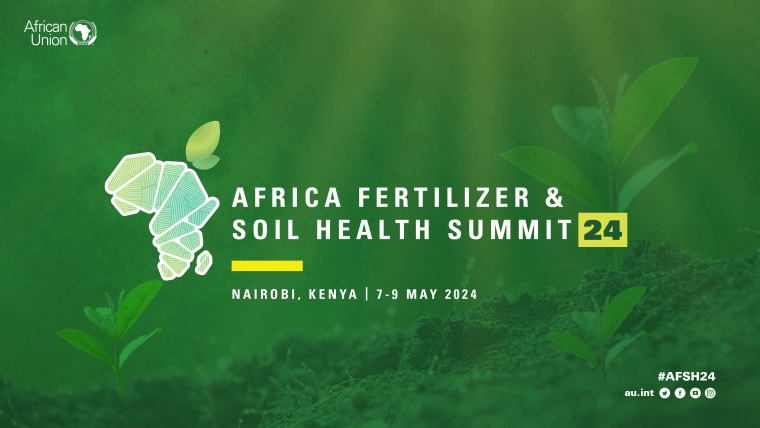

.jpg)
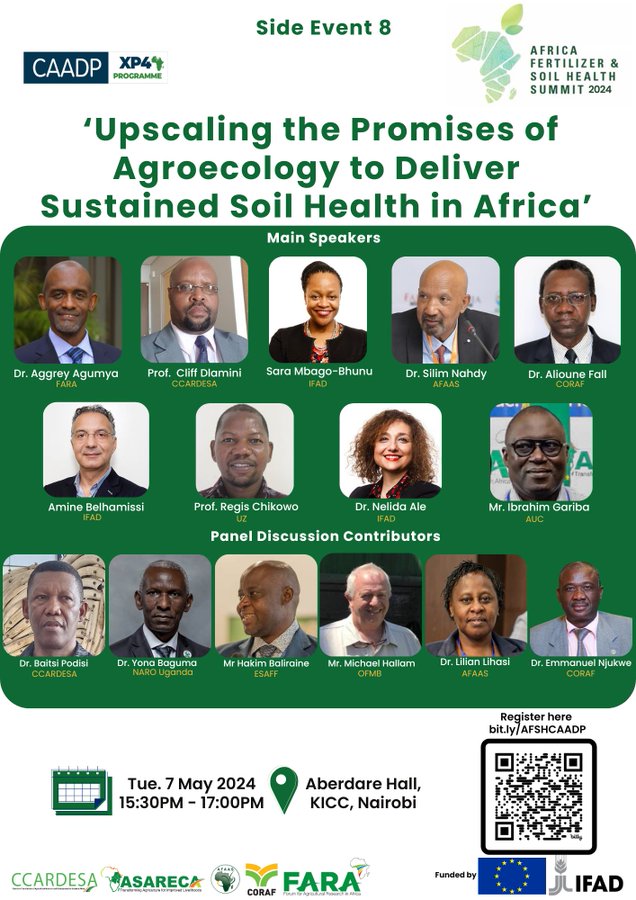


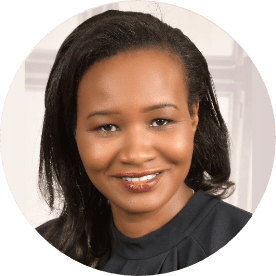
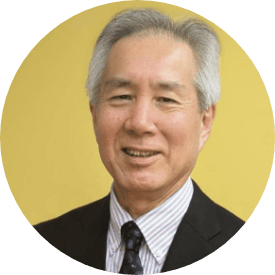
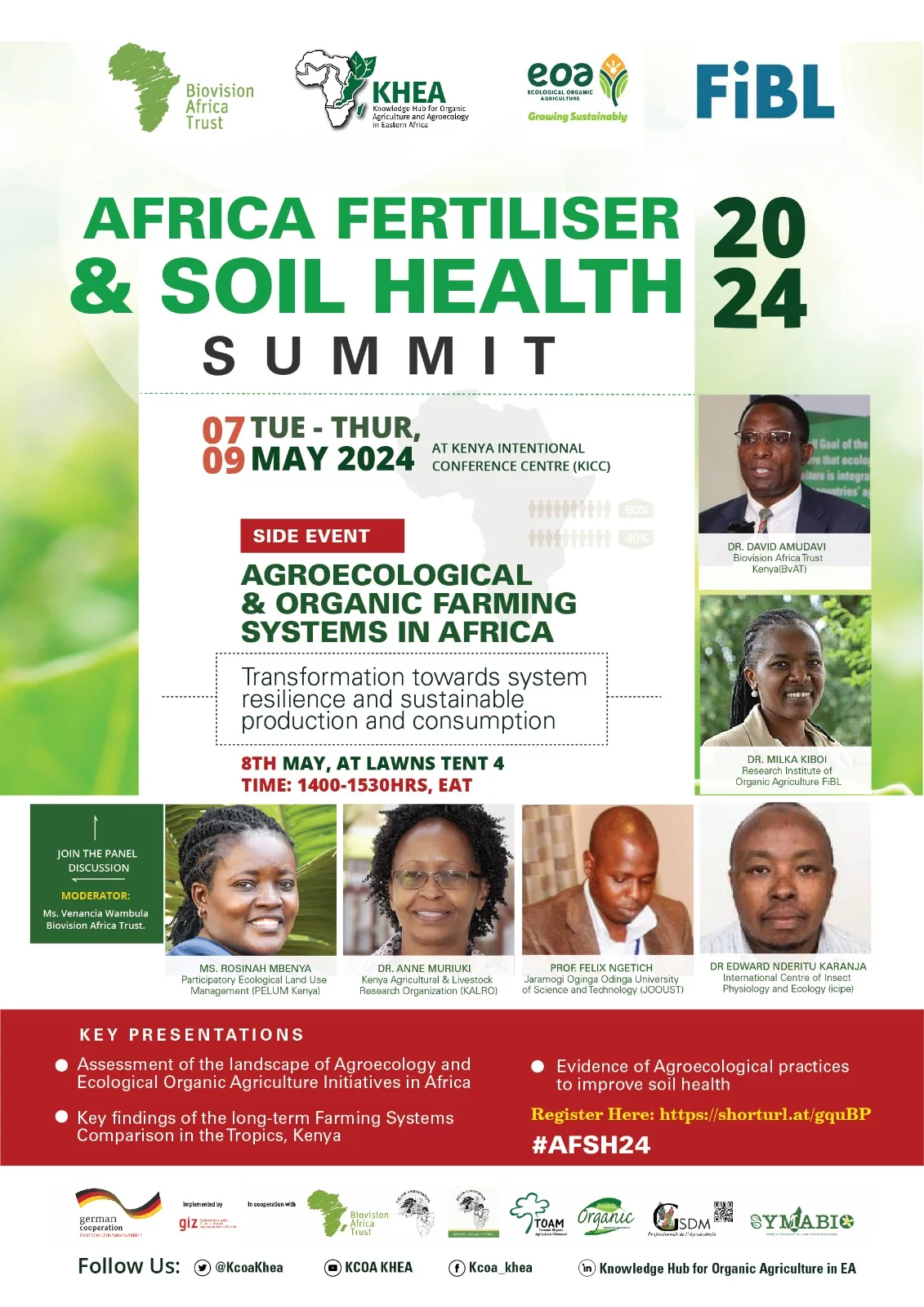

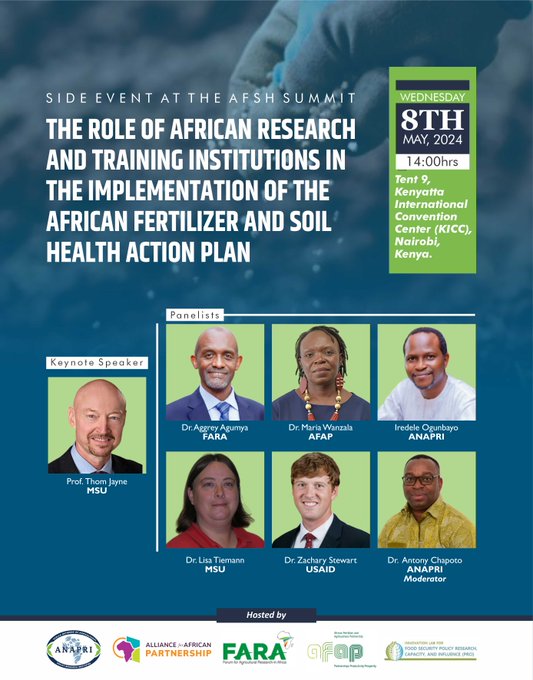




No comments:
Post a Comment